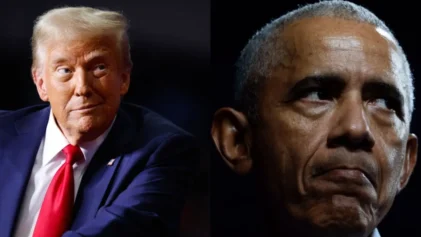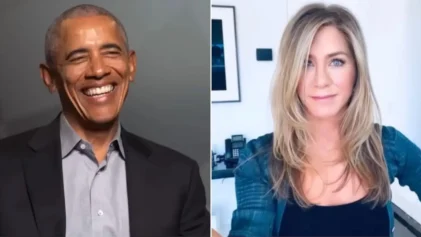The Gallup poll recently released the latest expected Latino voter turnout poll, and although the Gallup is predicting little change in the Latino vote the Obama campaign and other polls are saying otherwise.
According to the Gallup poll the 2012 election won’t see any significant difference in voter turnout compared to the 2008 election, especially not when it comes to minority voters.
The survey focused only on likely voters and predicted that nonwhites, blacks and Hispanics aren’t expected to have any substantial increase in how many of them make it out to cast their vote.
The voter prediction poll reported that the number of blacks that make it out to the poll this year will actually decrease by one percent. During the 2008 election, African Americans made up a mere 12 percent of all voters and this year they will only make up 11.
As for Hispanics, although the survey revealed some growth it still wasn’t substantial enough to indicate that the Latino voters would be able to make a major impact on voting day. While they were 6 percent of all voters during the last election, now they will make up 7 percent – only a one percent increase.
In short, the summary suggested that the key voters that Obama needs – such as women, minorities, and post graduates – are likely to have a similar turn out as the last election which might not be enough to keep the President office for a second term.
If you ask the Obama campaign, however, the prediction by the Gallup isn’t quite right. “The electorate has changed,” says Jeremy Bird, the national field director for the Obama campaign. “The Latino community is playing a key role in our diverse, grassroots movement to re-elect President Obama.”
If you ask Bird, the number of expected Latino voters increased far more than the latest election poll predicted. He believes that in North Carolina alone the Latino vote has increased 55 percent and several other states have seen smaller increase such as Nevada who has seen a 15 percent increase in Latino voters.
Even the National Association of Latino Elected and Appointed Officials isn’t seeing eye to eye with the Gallup. Their estimates reveal that the number of registered Latino voters has increased by at least 26 percent. While the Gallup poll has continued to defend their numbers, a polling expert from Emory University admitted that he thinks their “voter poll is screwy.”
“The racial make up of their likely voters are almost 80 percent white, and I think that is unrealistic,” said Emory polling expert Alan Abramowitz.
ImpreMedia even decided to take their own poll last week and even their results were nothing like that of the Gallup’s.
According to the ImpreMedia presidential poll, a whopping 87 percent of Latino’s planned on making it out to the polls compared to the only 37 percent that planned on voting ten weeks ago.
In addition to trying to predict the Latino voter turnout, the Gallup also discovered that for the first time this year more likely voters were planning on casting their ballots for the Republican Party rather than the Democratic Party. While the expected Democratic vote was 54 percent in 2008, this year it has decreased to 46 percent with 49 percent opting for the Republican ticket.
All the mixed results of the presidential polls don’t give anyone a clear indication of who might take the election, but according to David Rothschild, who has a PH.D in applied economics from the Wharton School of Business at the University of Pennsylvania, these polls aren’t even accurate indicators of the turnout of the election at this point.
Rothschild wrote that all the time going into the election polls is wasted because the polls don’t take into the account the number of electoral votes for each state.
The economics expert wrote, “At this stage in the election, like any sufficiently close election, the fate of the candidates rests with fewer than a half-dozen states…a national poll is not every useful at this point.”
In other words, only the states with the largest electoral votes will make any difference at this point in the election which means President Obama is likely to have a second term in office.
While Obama only needs Ohio, Florida, or Virginia to claim victory, Mitt Romney would have to get a hold of all three of these states in order to prevent the President from returning for a second term.


